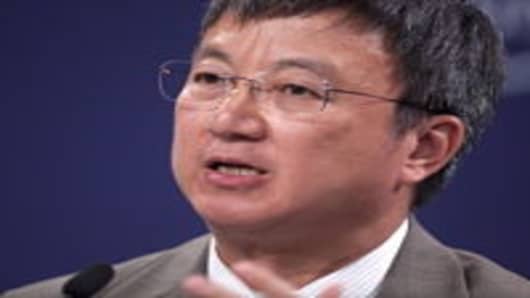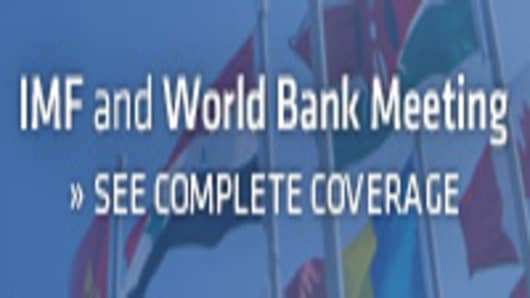
Bloomberg | Getty Images
Zhu Min, deputy managing director of the International Monetary Fund (IMF), speaks during a panel discussion at the World Economic Forum (WEF) Annual Meeting of the New Champions in Dalian, China.
Zhu was named one of the four deputy managing directors at the IMF by Christine Lagarde in July, soon after she took over. The appointment was seen by some as appeasing the increasingly vocal opposition within emerging economies to the appointment of yet another European as the managing director.
But a number of current and former economic policymakers say Zhu's appointment changes very little and that emerging economies and Asiaremain under-represented within the IMF.
“I think symbolically it changes the dynamics a little bit because it recognizes the ascendancy of China but what actually comes out of that appointment, whether China steps up to play a bigger role in the institution as a follow-up, that actually will be key,” says Ho Seng Chee, a Singaporean who worked 11 years at the IMF in Washington and is currently a council member at the Singapore Institute of International Affairs.
Chalongphob Sussangkarn, a former Thai finance minister told CNBC, “It’s so marginal that I don’t think it’s going to be that important because the Europeans and the U.S. still have the majority in the voting process.”
Voting power is crucial because it determines the composition of the IMF’s board, the organization’s highest decision-making body.
Critics say the distribution of voting power at the IMF doesn’t reflect current economic realities. For example, Europe and the U.S. have around half of all votes, even though they account for only 35 percent of global GDP. Asia, on the other hand, has 20 percent of the voting share, even though the region accounts for about 34 percent of global GDP.
In 2010, the G20 agreed to a6-percent shift in the voting power from developed countries to developing countries. The change will likely be implemented by October 2012.
Anoop Singh, director of the Asia Pacific Department at the IMF, says the move will make India and China among the Fund’s top ten voting members, and along with Brazil and Russia, put four emerging markets in the top ten.




